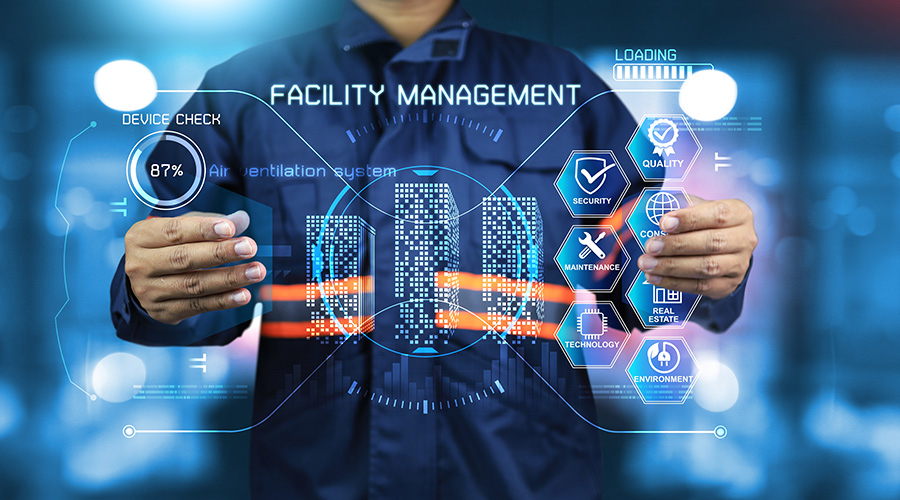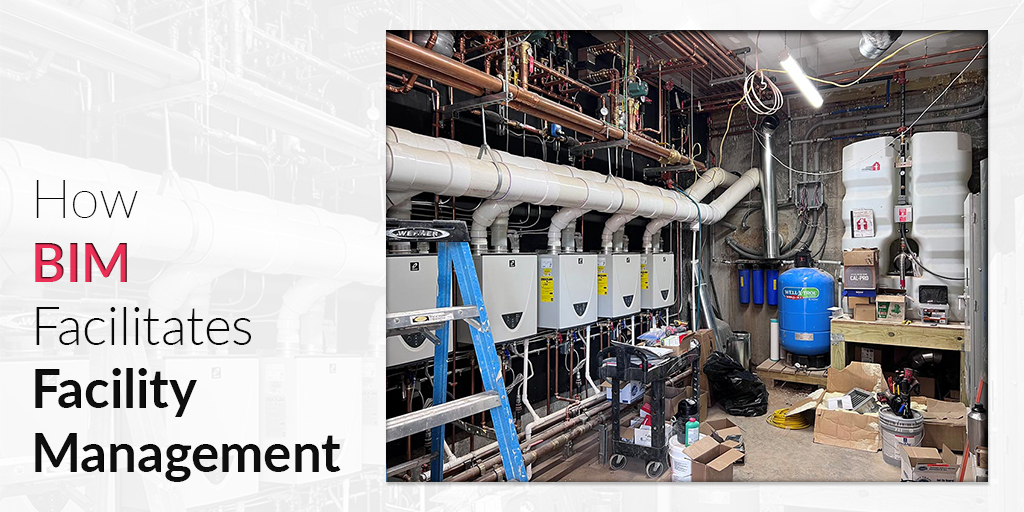Why Facility Management is Crucial for Property Durability
Wiki Article
Key Patterns Forming the Future of Center Administration in 2024
As we expect 2024, the landscape of center administration is poised for significant makeover, driven by several crucial fads. The assimilation of clever building modern technologies and a change towards data-driven decision-making promise to boost functional performance while prioritizing sustainability in method. The appearance of hybrid job models is improving workplace environments, demanding ingenious design options that provide to progressing employee needs. Amidst these adjustments, the focus on resident health proceeds to acquire grip, underscoring the importance of a healthy workplace. Exactly how these patterns will manifest in practice stays a vital inquiry for industry specialists.Smart Building Technologies

Smart structure innovations encompass a wide variety of systems, including intelligent lighting, HVAC controls, and security systems. By incorporating these systems, facility managers can keep track of and adjust parameters in real-time, bring about considerable reductions in power waste and operational expenses. For circumstances, wise sensors can detect occupancy degrees and readjust illumination and temperature as necessary, making sure that energy is just made use of when necessary.
Additionally, these technologies facilitate boosted data collection, enabling companies to track use patterns and determine opportunities for additional renovations. The application of smart structure innovations not only contributes to sustainability objectives but additionally creates much healthier job environments that can increase worker performance and complete satisfaction.
As we move into 2024, the fostering of smart building technologies will likely accelerate, reflecting a wider shift towards more smart, responsive, and sustainable center administration practices.
Data-Driven Decision Making
Significantly, organizations are leveraging data-driven choice making to enhance facility management practices. By harnessing information analytics, facility managers can derive workable insights that substantially boost functional efficiency and source appropriation. The integration of innovative modern technologies, such as IoT sensors and real-time monitoring systems, allows the collection of huge quantities of information on structure efficiency, tenancy prices, and power consumption.This riches of information permits center managers to determine fads, predict maintenance needs, and proactively address problems prior to they rise. Anticipating analytics can forecast devices failures, lowering downtime and repair work expenses. Furthermore, information visualization devices assist in much better interaction amongst stakeholders, making sure that informed decisions are made collaboratively.
Additionally, data-driven techniques enhance strategic preparation by enabling facility supervisors to examine the efficiency of existing methods and make informed choices relating to investments in technology or infrastructure. As organizations significantly focus on functional excellence, data-driven choice making is poised to become a foundation of successful facility monitoring techniques in 2024 and beyond. Ultimately, the ability to take advantage of data effectively will equip companies to create much more efficient, effective, and resistant centers.
Sustainability and Environment-friendly Practices
The focus on data-driven choice making naturally straightens with the expanding emphasis on sustainability and green practices within center management. As companies progressively focus on ecological responsibility, facility supervisors are leveraging analytics to optimize source usage, lower waste, and lessen carbon impacts. This tactical strategy enables the integration of energy-efficient systems, such as LED lights, wise HVAC controls, and renewable resource resources right into facility operations.In addition, the execution of sustainable practices expands beyond power usage. Center look at here now supervisors are adopting green materials and promoting recycling initiatives to create a circular economy within their facilities. This not just boosts the environmental account of the organization however also fosters a society of sustainability amongst staff members.
Compliance with environmental regulations is another crucial aspect driving the adoption of green techniques. By utilizing data analytics, facility managers can check compliance metrics and recognize locations for improvement, making certain adherence to local and global sustainability criteria.
Hybrid Work Designs
A significant shift towards hybrid work designs is reshaping the landscape of center management in 2024. This paradigm combines remote and in-office job, necessitating a reevaluation of room use, resource allowance, and staff member involvement strategies. Organizations are progressively identifying the importance of adaptable workspaces that accommodate varied requirements and choices.Center managers need to adapt by implementing versatile workplace designs that support collaborative initiatives while giving locations for focused job. This consists of the combination of technology to facilitate smooth interaction and cooperation amongst in-office and remote employees. Smart building solutions, geared up with analytics and sensing units, enable real-time surveillance of space use, making it possible for organizations to optimize their settings effectively.
Furthermore, hybrid work designs emphasize the requirement for efficient center administration that prioritizes employee experience. In significance, the hybrid work version is changing center management, urging a positive strategy to meet the developing demands of the labor force.
Boosted Occupant Health
As companies accept hybrid job versions, an enhanced concentrate on resident health is coming to be integral to center management techniques. Facility Management. This change acknowledges that a pleased and healthy labor click site force straight affects performance and retention rates. Facility managers are currently focusing on settings that advertise physical and psychological health, incorporating elements such as natural illumination, biophilic style, and easily accessible wellness sources

Modern technology plays a vital function in this evolution. Smart building systems can monitor ecological elements and adjust setups in real-time, making sure ideal convenience degrees - Facility Management. Additionally, feedback systems, such as tenancy sensing units and staff member studies, enable center managers to constantly improve wellness efforts based upon owner needs.

Verdict
In 2024, the future of center management will be significantly affected by the assimilation of smart building technologies and data-driven decision-making, promoting boosted functional effectiveness. Sustainability efforts will focus on environmentally friendly techniques, while the appearance of hybrid work designs will necessitate flexible office designs. An increased focus on owner health via sophisticated Heating and cooling systems and biophilic style will contribute to much healthier work environments. These trends jointly highlight the developing landscape of center management in response to contemporary obstacles and possibilities.Center managers are click here to read advertising and adopting environment-friendly materials reusing campaigns to produce a circular economy within their facilities.A considerable shift towards hybrid job designs is reshaping the landscape of center monitoring in 2024.Furthermore, hybrid job designs emphasize the requirement for effective facility management that focuses on staff member experience.As organizations welcome hybrid work models, a heightened focus on owner health is coming to be important to facility management strategies.In 2024, the future of facility management will be dramatically affected by the assimilation of wise building modern technologies and data-driven decision-making, promoting boosted functional performance.
Report this wiki page